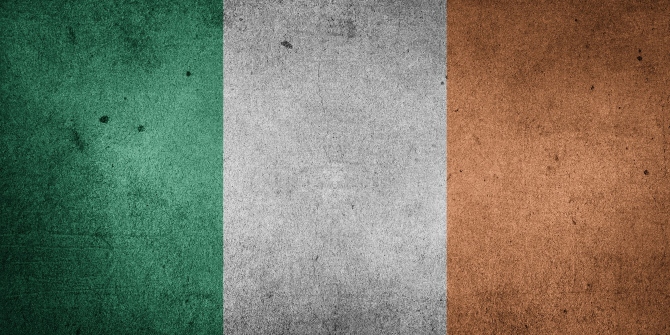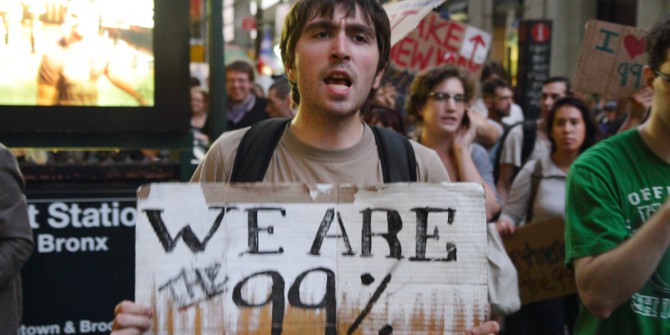
A fortnight can be a very, very long time in politics. The plasticity of British politics has become mesmerising. A no-deal Brexit on 31st October, which for a moment looked all but inevitable, now seems to have melted into air. Sometimes, it is easy to become despondent when faced with the brutal immorality of vicious ideologues and moneyed elites. But despair is what the right-wing cabal in power want to engineer. Fortunately, nothing is completely pre-ordained in the world of human affairs.
The extremism of the Johnson regime seems matched only by its incompetence. Both unlovely features have been on gruesome display over the last two weeks as the government’s limbs twitch from crisis to crisis.
On 28th August, Johnson dragged the Queen into politics by getting her to suspend Parliament in order to force a no-deal Brexit on a recalcitrant country and legislature. This prompted a fractious Rebel Alliance to unite around a ‘Stop the Coup’ bill to force Johnson to request a delay in leaving the European Union (EU). The reward for the 21 Conservative MPs who found the backbone to stand up for democracy was to be expelled — the biggest cull ever in the world’s oldest party. In subsequent days, the PM’s brother, Jo and his Work and Pensions Secretary have also quit, saying they had to put the nation before family and party.
Lashing out, the Prime Minister then threatened to defy the new directive – ripping up the rule of law. On Monday, 7th September, he tried to force an early general election, only to be defeated yet again. Then on Wednesday, the highest court in Scotland declared that Johnson had broken the law by suspending Parliament – the ‘improper purpose of stymieing Parliament’. His excuse that the ‘proroguing’ was to allow more time to pursue his domestic policy agenda was exposed again as another transparent lie. The Supreme Court will make the final decision next week.
Some of the Johnson crew have ‘fessed up that they, like the other Brexit Party, are simply salivating for a no-deal Brexit. But his squirming cabinet have parroted the line that by making a no-deal more credible, ‘Brussels will cave in, and give us what we want’. This frankly preposterous position was rather undermined when Dominic Cummings, Tsar Johnson’s Rasputin, was caught admitting that the negotiations with Europe were a ‘sham’. A ruse designed to give the pretence of negotiation while simply running down the clock to Hallowe’en.
Backstory to the Irish backstop
The negotiations fairy tale was spun again on Johnson’s trip to Dublin, but Irish PM Leo Varadkar shredded this nonsense. In Theresa May’s withdrawal agreement with the EU, the Irish backstop is the insurance policy that would keep a frictionless border between the Republic of Ireland and Northern Ireland if no other agreement has been made in the transition period. Effectively the North would remain in the customs union and single market.
This ignited the furore of the hard Brexiters who voted three times against the deal. Their reward for such disloyalty was not expulsion, but promotion into the cabinet.
For me, the Irish backstop is personal. My wife is Irish, and our family spends a lot of time in the Republic. Like most comprehensive school kids of my generation, I learned almost nothing about Ireland in history lessons. The Tudors and Hitler, yes, ad nauseum. Cromwell’s massacres and the famine, no. Although our lessons were frequently interrupted by IRA bomb scares (especially near exam time), the causes of the Troubles themselves went unanalysed.
I have been reluctant to write about the Irish backstop because its elimination would make Theresa’s May’s deal even more awful, not less. Great Britain would still be out of the planet’s biggest single market, even if the backstop kicked in. This would increase trade costs with our closest European neighbours, reducing our incomes – so less money on public services, higher prices and tax hikes.
The row over the Irish backstop reveals so much about the idiocy of Brexit, both practically and symbolically. A hard Brexit creates an effective border in the seas around Britain, but this is more opaque than in Ireland where the 310-mile land border will become solidified in steel and concrete.
A hard border on the island of Ireland destroys the Good Friday Agreement, which detoxified the bleeding sore of the Troubles. This is why the leader of the US House of Representatives has promised to veto any UK-US trade deal that creates a hard border. Brexit stirs up this centuries’ old violent conflict again, just as the project to destroy the EU will stir up old enmities again across the continent. The vision of the EU has been to bind warring tribes together so that we fight over fish quotas instead of bloody fields and Lebensraum. Boris Johnson’s jingoism reflects both ignorance of Ireland’s history and contempt for her people.
Solutions to the Irish border issue?
How can an Irish hard border be prevented? There is of course, no technological solution – this has been explored in excruciating detail over the last three years. Stopping Brexit would be the best solution – there was no understanding of this problem during the referendum, except perhaps in Northern Ireland itself, which voted to remain. At the very least, democracy demands that the people should be allowed a vote on what form Brexit might take. It cannot be repeated too often, that there is no mandate for a no-deal Brexit. This was not on the referendum and its odds were ‘a million to one’ (Boris Johnson).
One simple solution is for the UK to leave the EU but stay in customs union and single market, so there would be no need for border checks. This is perfectly compatible with leaving the EU (Turkey is likely to be outside the EU indefinitely, but it is in the customs union; Norway is in the single market). This seems to be the Labour Party’s approach. Given the country was split down the middle for the referendum, this kind of soft Brexit would have seemed a natural settlement. There was no reaching out by Theresa May, however, just the empty rhetoric of “no deal is better than a bad deal”, the rope with which her Taliban wing eventually hung her with.
If one is hell-bent on leaving the customs union, then the island of Ireland could stay in the customs union and the rest of the UK could leave it. But this crosses yet another ‘red line’ of Brexiters — that there can be no trade barriers between Great Britain and Northern Ireland. Although it is fine for the Northern Irish to keep abortion and gay marriage illegal, a tariff is, apparently, an ethical step too far. Of course, now that Johnson’s slender majority has dissolved, he might be tempted to sacrifice his pact with the Democratic Unionist Party to push Brexit through.
The British position now seems to be that the UK should be able to decide unilaterally when to create a hard border in Ireland, regardless of what the Irish or rest of the EU want. As David McWilliams put it, ‘Part of the new British approach has been a relentless campaign to paint itself as the victim of Irish inflexibility, simultaneously emboldened by a Rule Britannia assurance that Ireland can, and will, be brought to heel. This unstable combination of whingeing victimhood twinned with pompous self-regard has characterised much of Britain’s negotiations thus far.’
So, there is no solution if the Brexiters want to keep all their red lines. There is nothing the EU can really do, except to capitulate to the UK and let it erect a hard border at will. But the EU will not do this. It was created in large part to allow smaller countries to stand up to larger ones. Nationalism means that the biggest and militarily strongest countries can push around the smaller ones, which is why populists like Trump are so keen to rip up the rulebook on international organisations like the WTO and NATO.
England has bullied Ireland for centuries, and the dissolution of the EU would enable Johnson and his Eton chums to return to business as usual. The difference now is that Ireland is one of 28 nations in the club and the EU can say: ‘No, you’re not alone – we’ve got your back’. And this is why the EU will stand up for Ireland. Because the point of the club is that our countries are stronger together than picked off apart.
Wise heads have long told me that a People’s Vote is highly improbable. But as that well-known political scientist Sherlock Holmes once said, ‘When you have eliminated the impossible, whatever remains, however improbable, must be the truth’.
We are exhausting all the other paths. Brexiters will eventually realise the only way to get their beloved dream, though, is to ask the people if, now that they have a better idea of what it really means, they still really want it.
I believe the people will say “no thanks”. But for God’s sake, surely democracy demands that we have the final say.
♣♣♣
Notes:
- This blog post gives the views of its author, not the position of LSE Business Review or the London School of Economics.
- Featured image by Chickenonline, under a Pixabay licence
- Before commenting, please read our Comment Policy
 John Van Reenen is a professor at MIT’s department of economics and Sloan School of Management. From October 2003 to July 2016 he was professor of economics and the director of the Centre for Economic Performance (CEP) at LSE. He has published widely on the economics of innovation, labour markets and productivity. In 2009 he received the Yrjö Jahnsson Award, the European equivalent to the US Bates Clark Medal, awarded every two years to the best economist in Europe under the age of 45. In 2014 he won the European Investment Bank prize for excellence in economic and social research.
John Van Reenen is a professor at MIT’s department of economics and Sloan School of Management. From October 2003 to July 2016 he was professor of economics and the director of the Centre for Economic Performance (CEP) at LSE. He has published widely on the economics of innovation, labour markets and productivity. In 2009 he received the Yrjö Jahnsson Award, the European equivalent to the US Bates Clark Medal, awarded every two years to the best economist in Europe under the age of 45. In 2014 he won the European Investment Bank prize for excellence in economic and social research.





